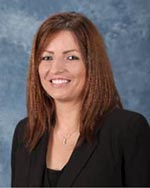Date
Cost
Free and open to the public
Location
Physical Science Building, Room 161
Description
Surfaces and interfaces have fascinated scientists for decades. In modern microscopy, high spatial and spectral resolutions are of great importance in addressing questions related to material properties. The emergence of methods based on mechanical interactions such as the atomic force microscopy (AFM), which in many ways surpasses what can be achieved optically due to the inherent diffraction limit, has opened numerous research opportunities for investigating surfaces across the full spectrum of scientific disciplines. More recently, the ability to noninvasively explore the subsurface for presence of material inhomogeneities or internal structures also opens exciting routes towards the development of advanced nanoscale characterization platforms. This seminar will focus on the emerging concept of Mode Synthesizing Atomic Force Microscopy (MSAFM), a multifrequency technique that capitalizes on the nonlinear tip-sample interaction forces in AFM for advanced exploration of complex soft matter systems. The engendered nanomechanical coupling offers a unique, highly sensitive route to monitor a host of physical properties. Furthermore, the new MSAFM modes can be utilized as new resonances of an AFM system by means of another original concept coined the "virtual resonance", for increased sensitivity and contrast of their dynamics. Thus, by varying the nature of the excitation, using elastic or photonic coupling, it is possible to obtain physical and chemical fingerprints of heterogeneous media with high spatial resolution.
Guided by our recent results on 1-the localization of nanofabricated structures composed of deposited metal nanoparticles embedded in a semiconductor matrix, 2- the investigation of nanoparticle-cell interaction, and 3-the study of the complex structure and composition of biomass plant cell walls, we will highlight the versatility of MSAFM. We will finally discuss the promising applications for disease-related and nanotoxicity challenges, including label-free subsurface imaging of living cells, multivariate nanoparticles-cell interactions, as well as nanoelastic and nanochemical fingerprinting of healthy, stressed and cancerous cells.
Presenter

Laurene Tetard, Ph.D.
Eugene P. Wigner Fellow
Imaging, Signals, & Machine Learning Group
Oak Ridge National Laboratory
More information
Light refreshments will be served
Contact
Mari Pina NanoScience Technology Center 407-882-1515 Mari.Pina@ucf.edu